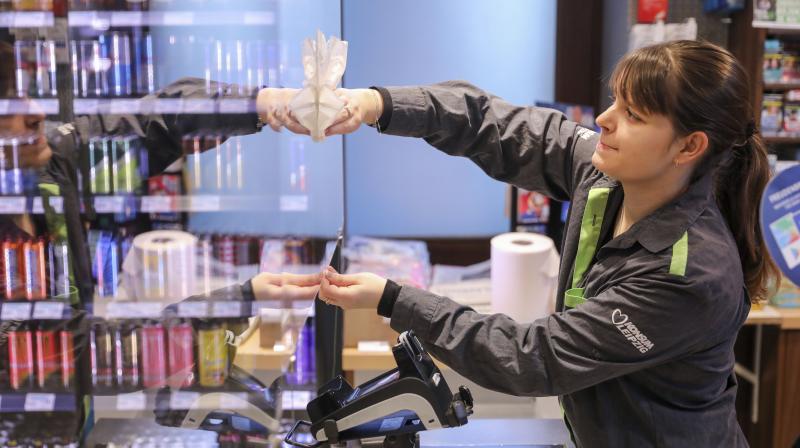German plexiglass firm churns out virus shields to avoid coronavirus spread
04 April, 2020

Touted as a straightforward but effective shield against coronavirus infections, transparent screens have sprung up at supermarket tills and pharmacies across Germany.
The Plexiglas Riesner processing plant in Wiesbaden is abuzz with activity as owner Claus Mueller and his employees race to get out the next batch of orders, cutting and bending acrylic sheets to size as the phone rings off the hook.
It’s the busiest time in the tiny company’s 114-year history, with requests to arrive faster compared to the supply chain are designed for.
“We've endless work but the reason is quite sad, so we can’t be euphoric about it,” Mueller tells AFP.
Demand for “sneeze guards” has surged as companies scramble to safeguard employees from a deadly virus that is transmitted through droplets from an infected person’s mouth or nose, putting at risk those whose jobs don’t permit them to keep carefully the recommended two-metre (six-foot) distance.
“It’s the sensible thing to do if close contact can’t be avoided,” says Mueller.
In the space of mere weeks, German shoppers have grown to be used to the sight of plexiglass barriers separating them from cashiers in food markets, among the few retailers that remain open.
Mueller says his sales have doubled in March compared with pre-virus times, boosted by business from hospitals, pharmacies, hotels, banks, and doctors’ offices.
Stock running out
But he's fast running sold-out, and estimates he only has enough to continue for another week or two.
“It seems the complete market in Germany is coming to a standstill,” Mueller says.
While plexiglass can often be used as shorthand for just about any acrylic sheets, Mueller points out that the high-quality Plexiglas (spelled with a single “s”) that he mostly works together with is a registered trademark.
And his Plexiglas wholesaler has warned that deliveries of raw materials are grinding to a halt.
“We’re not expecting new deliveries until early May,” Mueller says.
According to analyze firm 360 Market Updates, the global market for acrylic sheets was worth $5.3 billion (4.8 billion euros) in 2019 and is forecast to grow to $7.1 billion by 2024.
‘Feel safer’
The Plexiglas Riesner company began as a family group glass-cutting business before founder Karl Riesner’s son switched to cheaper and simpler to manipulate plexiglass in 1957.
Mueller overran the firm in 2004 after stumbling across it on a government website that connects entrepreneurs with small and medium-size “Mittelstand” companies, considered the backbone of Europe’s top economy, looking for successors.
“I ran the numbers and knew I possibly could make it happen,” he recalls.
Looking at night coronavirus crisis, Mueller expects demand for plexiglass from food retailers will fall off, and predicts that lots of will eventually take away the screens.
But he can see plexiglass becoming a fixture in pharmacies and doctors’ reception areas.
One of is own customers, pharmacist Iris Erdelmeier, says she feels convenient working behind the plastic safeguard as the pandemic rages, with plexiglass dividers installed at all three of her pharmacy’s tills.
“We feel much safer with the protective screens. They also protect our patients in case we ourselves were to be infected without showing symptoms,” she says.
Source:
TAG(s):
